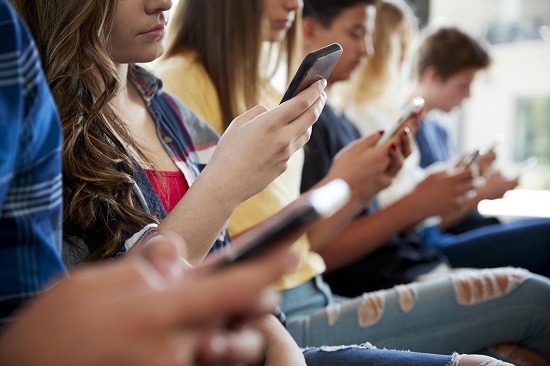How Can we Prevent Teens from Feeling the Pressures of Social Media?

Social media has become increasingly popular and is seen as not only a luxury, but a necessity to society, especially tweens and teenagers. Kids ages 8-12 spend around six hours on their devices while teens spend a minimum of nine hours, most of which is all on social media.
Perfection is posted on social media. Perfect bodies, perfect hair and makeup, perfect couples and groups of friends, perfect cupcakes and vacations fill the screens of teenagers around the world. Standards are high on social media to an unachievable level and this can negatively affect the mental health of teenagers. This age group is particularly vulnerable to negative mental health effects because teens are heavily influenced by the people around them; they won’t fully develop until an age of around 25 years old and some won’t have a true sense of self for years after that. So, if a teen searches out role models, behavior and interests from the Internet and social media platforms which showcase a false sense of identity, this often develops into a mental health problem because the unachievable is what they choose to strive for. Instead it is beneficial, although more difficult, to search out role models, behavior, and interests from real people and real sources which abound if the time is taken to look.
Some of the many mental health disorders that are caused by teen social media use include depression, anxiety, loneliness, self-harm, and even suicidal thoughts. Constant attempts to reach the high standards of living seen on social media may cause depression and suicidal thoughts. The suicide rate since 2007 has doubled among young girls, and is a direct result of social media usage. As social media use increases so do suicide rates; there is a direct correlation between the two. Cyberbullying is another development of increased social media use that has a negative effect on mental health. A few ways to stop cyberbullying before the problem increases is to tell a trusted adult. Also to make sure to keep evidence of the bully if you need to go to police or authorities about the problem. A big factor is to not fight back the bully, in some cases then the victim becomes the bully themselves.
Teens tend to compare themselves to others, especially social media influences and celebrities. Teens should understand that they are different from these celebrities and don’t need to look like them. To help teens realize this they should accept their imperfections because nobody is perfect, no matter how rich or famous you are. If teens can’t help but to notice their imperfections use this for motivation and inspiration to make what you want. Instead of comparing yourself to others and your role models, compare you to you. Compare yourself to your past self and notice how you’ve grown and changed and make differences if desired.






